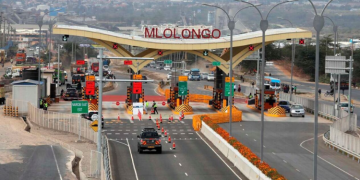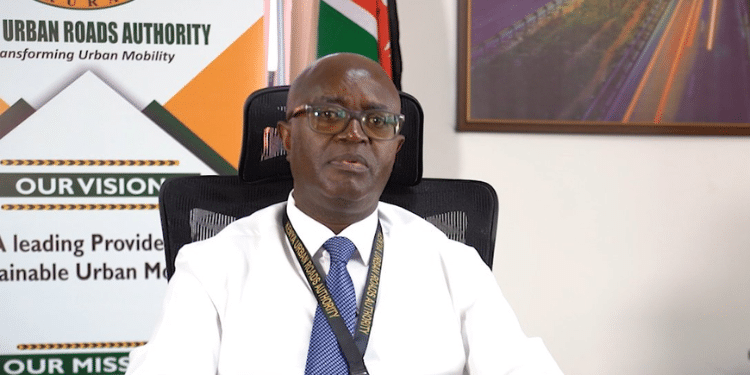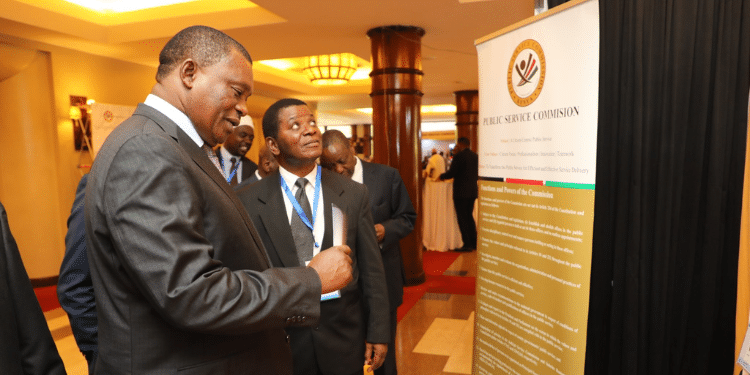Civil servants in Kenya have suffered a blow following an announcement by the government, through the Public Service Commission (PSC), that it has no plans to review their salaries anytime soon.
This comes despite the harsh economic conditions that have severely affected civil servants across the country.
According to the PSC, the global financial crisis has impacted the country’s economy, resulting in stagnated salaries for government workers, as salary reviews depend on the country’s revenue collection.
The commission’s Vice-Chairperson, Mary Kimonye, while addressing the press on the sidelines of the Sixth Women in HR Convention in Naivasha on Tuesday, March 25, stated that salary reviews are contingent on the country’s revenue performance.
PSC warns of difficult times ahead
Kimonye further pointed out that due to the ongoing global financial crunch, the economy is underperforming, and Kenyans should brace for more difficult times ahead.
“So long as the economy is not growing at the rate that we want it to grow, even the agitation for higher salaries just becomes an agitation,” she said.
Also Read: Govt Announces Pay Rise for Kenyan Workers
This came even as the commission identified economic challenges as a major contributor to the rising cases of mental health issues among government employees.
PSC Vice-chair said that the government was working on early detection with mental champions appointed in every government department.
“There’s a time we had even very many suicides especially with the police force and the government has put in place mechanism to deal with mental health,” she said.
Kimonye, at the same time, admitted that the number of women in the public service was low at 38 percent compared to that of men at 62 percent, adding that the government was addressing this.
The announcement by PSC that the government is not planning to review salaries for civil servants comes months after Public Service Cabinet Secretary Justin Muturi disclosed that the National Treasury had approved funds amounting to Ksh 1.5 billion meant for the pay rise of all civil servants.
This decision announced in September 2024 came as a significant relief to workers who were planning to go on strike.
“The State Department for Public Service will utilize the approved budget for FY 2024/2025 to ensure that our civil servants receive fair compensation and remain motivated to serve Kenyans with excellence,” he stated.
“Our aim is to foster a performance-driven culture that will boost productivity and restore public confidence in our services,” he added.
Pay rise for civil servants
Former Principal Secretary Amos Gathecha issued a circular to the Auditor General, the Controller of Budget, and all county commissioners, including their deputies, regarding the new salary adjustments.
The second phase of the new basic salaries and house allowances effective retroactively from July 1, 2024, impacted employees in job groups CSG17 to CSG4.
Job groups are generally classified based on an employee’s level of education, skill set, and certification.
Also Read: MPs Reject Pay Rise, Gang Up Against SRC
“All employees receiving house allowance for the cluster category will adopt cluster three rates,” the circular stated.
Gathecha further noted that house allowance for the cluster 4 category ceased to apply starting July 1, 2024.
Under the new pay structure, civil servants saw a salary increase of between Ksh1,000 and Ksh3,000.
The lowest cadre, CSG 17, saw their monthly salary rise from Ksh16,920 to Ksh19,340.
On the other hand, employees in CSG 16 were set to earn between Ksh18,250 and Ksh21,940 monthly, while those in the highest-paid Grade 4 category were set to receive between Ksh182,890 and Ksh339,780 monthly.
Ruto announces minimum wage rise
President William Ruto had in May 2024 directed the Ministry of Labour to hold a meeting with the relevant labour relations committee to raise the minimum wage by at least 6 per cent.
This, the President said, was part of the government’s initiative to uplift the welfare of workers.
President Ruto also instructed the Ministry of Labour and Social Protection to operationalize multiple wage councils provided for in the Labour Relations Act 2007, aiming to ensure industrial peace and the effective management of disputes.
These include wage councils for seafarers and protective, general and agricultural workers.
Follow our WhatsApp Channel and join our WhatsApp Group for real-time news updates










































































